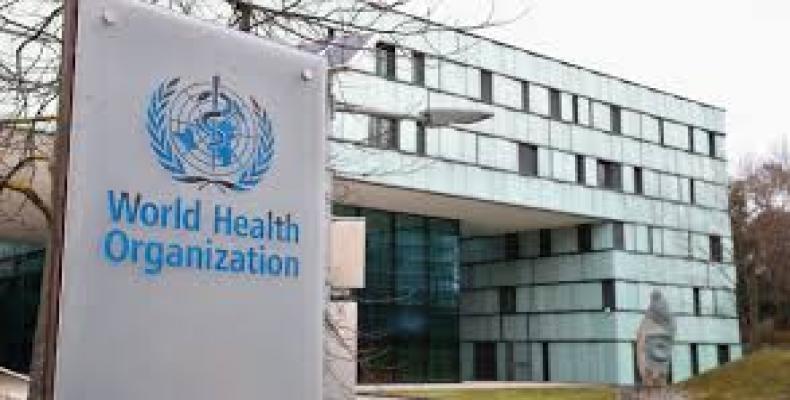
Geneva, December 5 (RHC)-- The World Health Organization’s (WHO) chief scientist has urged people not to panic over the emergence of the Omicron coronavirus variant and said it was too early to say if vaccines would need to be reworked.
Speaking in an interview at the Reuters Next conference over the weekend, Soumya Swaminathan said it was impossible to predict if Omicron would become the dominant strain. Omicron has been detected in at least 38 countries in Asia, Africa, the Americas, the Middle East and Europe and has reached seven of the nine provinces of South Africa, where it was first identified. Many governments have tightened travel rules to keep the variant out.
Swaminathan said Omicron appeared to be “highly transmissible” and cited data from South Africa showing the number of cases doubling daily. “How worried should we be? We need to be prepared and cautious, not panic, because we’re in a different situation to a year ago,” she said.
“Delta accounts for 99 percent of infections around the world. This variant would have to be more transmissible to outcompete and become dominant worldwide. It is possible, but it’s not possible to predict.”
Much remains unknown about Omicron, as parts of Europe grapple with a wave of infections of the more familiar Delta variant. “We need to wait, let’s hope it’s milder … but it’s too early to conclude about the variant as a whole,” Swaminathan said.
The WHO said on Friday it had still not seen any reports of deaths related to Omicron. And the WHO’s emergencies director, Mike Ryan, said on Friday there was no evidence to support a change in vaccines to tailor them to Omicron. “Right now, we have highly effective vaccines that are working. We need to focus on getting them more equitably distributed. We need to focus on getting people most at risk vaccinated,” Ryan said at a social media event.
WHO spokesman Christian Lindmeier told a United Nations briefing in Geneva that vaccine makers should prepare for the likelihood of adjusting their products.
Ugur Sahin, CEO of Germany’s BioNTech, which makes a COVID vaccine with Pfizer, told the Reuters Next conference the company should be able to adapt the shots relatively quickly. Sahin also said current vaccines should continue to provide protection against severe disease, despite mutations. “I believe in principle at a certain [point in time] we will need a new vaccine against this new variant. The question is how urgent it needs to be available,” Sahin said.
Omicron was first reported to the WHO from South Africa on November 24, while the first known laboratory-confirmed case was identified from a specimen collected on November 9th. Maria Van Kerkhove, the WHO’s technical lead on COVID-19 said a backlog of virus sequences had built up in November, meaning some of the earliest cases may yet be found outside South Africa.
The number of COVID-19 infections topped three million in South Africa on Friday as new daily infections driven by the Omicron variant rose steeply, official figures showed.
On Friday, 16,055 new cases were reported in a 24-hour reporting cycle, taking the cumulative laboratory-confirmed cases to 3,004,203. “This increase represents a 24.3 percent positivity rate,” the government-run National Institute for Communicable Diseases said in a daily update.

